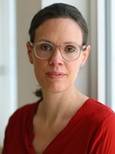Main content
Top content
Go to German version

Prof. Dr. Isabella Löhr
FU Berlin / Leibniz Centre for Contemporary History Potsdam (ZZF)
Am Neuen Markt 1
D-14467 Potsdam
Isabella Löhr
International History of the Twentieth Century
A historian of global and international history, her research interests focus on European history in global contexts, including Western and Eastern European perspectives. The major topics of her research are migration and mobility, international law and humanitarian aid, and the history of international movements. Her research includes methodological and conceptual reflections on the challenges and pitfalls of a European perspective on international and global history.
Isabella Löhr is the Chair of International History of the Twentieth Century at the Freie Universität Berlin and head of the Globalisations in a Divided World department at the Leibniz Centre for Contemporary History in Potsdam (ZZF).
As member of the Collaborative Research Centre SFB 1604 she co-heads the project A5 ›Refugees‹ and Others: The Production of Refugee-Related Figures since the 1970s
From January 2019 until September 2021, Isabella Löhr was head of the Research Group The Production of Knowledge on Migration at the Institute for Migration Research and Intercultural Studies (IMIS) at the University of Osnabrueck, funded by the Volkswagen-Foundation.
Here you will find more information on research activites and publications.

